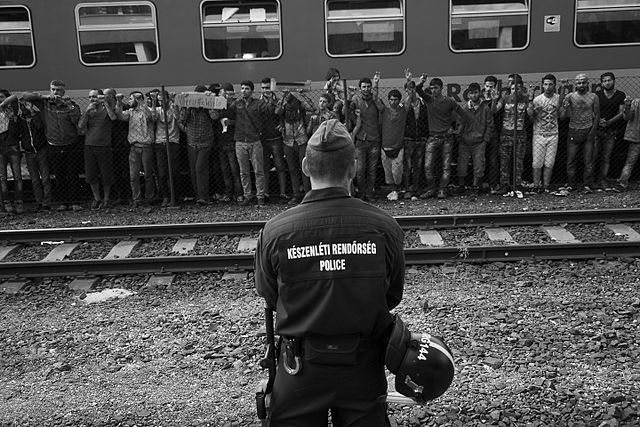
The mass exodus of Syrians due to a vicious civil war and a destroyed national spirit has seized the attention of the international press corps. The current flood of an estimated four million Syrian migrants across primarily neighboring Middle Eastern and southern European countries has stressed global immigration policies to its furthest extent.
With each passing week, western powers like the United States, France, Germany and Great Britain, have had to contemplate strategies aimed to stem the flow of migrants. At the same time, these nations must also consider the equally important task of internally stabilizing Syria.
Denera Ragoonanan, a second-year international relations major, stated that the most important aspect to address is why the refugees are leaving Syria.
“The crisis began during the Arab Spring in 2011, with the initial protests against [President Bashar al-] Assad,” Ragoonanan said. “Since then, inequality has widened and the Syrian people have become polarized by the internal conflicts within their country.”
Botros Toro, a fourth-year political science and economics double-major, originally from Aleppo, Syria, said that after nearly five years of war it is understandable why people are migrating to Europe.
“The war is complicated because it’s not a two-sided war,” Toro said. “There are multiple sides engaged in this conflict. This makes it especially difficult because the government is fighting rebel groups that have turned into extremists. In addition to that, you have the creeping influence of ISIS and Al Nusra. There’s not just one end solution available to fix it.”
There are also lingering issues regarding how sovereign nations should be governed and be treated in the international community. Dr. Ryan Irwin, an assistant professor of history at the State University at Albany, addressed questions about how countries are choosing to deal with the immigrants in Europe. Irwin also highlighted the fact that most historical migration trends point to the fact that ultimately most refugees will return to Syria.
“Whether with the United States in the Middle East, or the European Union dealing with member nations, there are questions about if countries have the ability to tell other sovereign nations what to do,” Irwin said. “But the narrative shouldn’t be lost on that. This is a story regarding the Middle East. The European aspect is simply a microcosm of a larger issue.”
Focusing on the Syrian condition, Toro remarked that it has become a battle of lesser evils for the citizens who remain in the country.
“A lot of people have been going to government area because that’s where they have access to food, shelter, water, hospitals, among other things,” Toro said. “I think taking down Assad now would be the wrong move because it would open the opportunity to create a political vacuum.”
Blame has also been laid at the feet of states in the Gulf, who have adamantly refused to accept any refugees.
“Since wealthier nations like Saudi Arabia, Kuwait and Qatar aren’t taking in refugees, they’ve turned their attention to Europe,” Toro said. “It’s where they find hope. If these nations in the Gulf had accepted refugees, particularly poor ones, then there would be less refugees elsewhere.”
Ragoonanan was equally as critical of the Gulf States, as well as the global response to the crisis.
“There isn’t likely to be an end to the crisis until there is peace from within Syria,” Ragoonanan said. “I think the biggest misconception some people have is that the U.S. should have a clear cut military solution for this crisis. The civil society development aspect of this story is of crucial importance, too.”
Irwin further extended on that narrative, questioning whether the U.S. has the current capabilities to solve the Syrian conflict.
“We seem to lack a framework for answering the question of what we should do,” Irwin said. “It begs the question as to whether history has caught up to us. We learned in Iraq that ordering ground troops doesn’t always work. Then are we going to use airstrikes like we did in Bosnia? It’s been difficult to emulate those effects because we don’t have the same coalition countries to mobilize like we did with Yugoslavia.”
